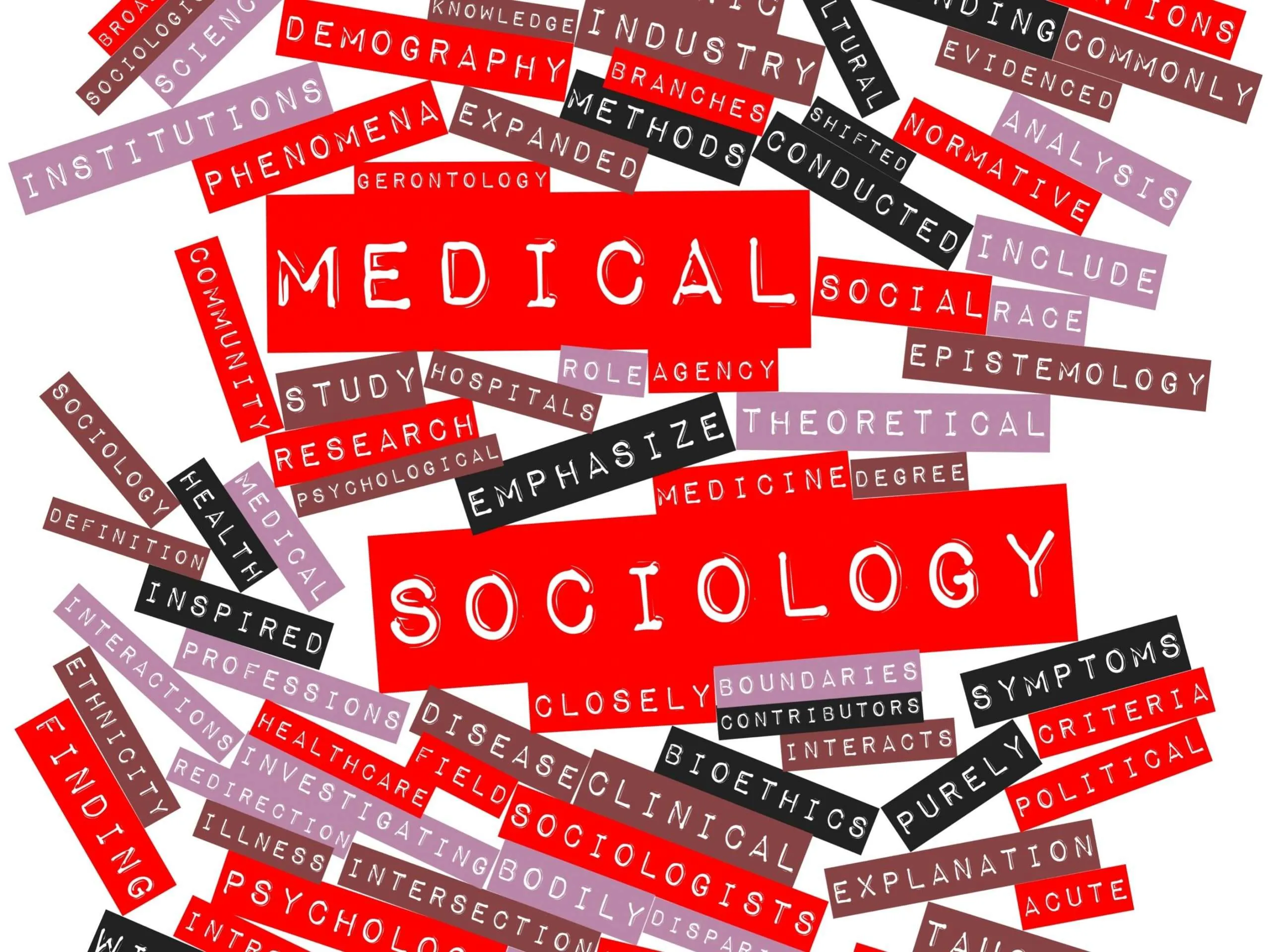Sociology has many subfields that focus on specific social institutions. Medical sociology—as is indicated in the name—applies sociological concepts, research methods, and theories to the social institution of medicine. Although this definition of medical sociology seems simple at first glance, there are a myriad of ways in which sociologists study medicine. Regardless of how sociologists study medicine, medical sociology is essentially applying sociology in health.
This subfield covers a wide variety of topics related to health and can investigate anything from healthcare policy and social epidemiology to social movements related to health, such as the antivaxx movement. Medical sociologists often collaborate with health professionals from other fields—such as public health, medicine, nursing, epidemiology, etc.—but what makes their perspective unique, is their ability to understand how social-structural factors influence health outcomes and trends in various ways.
After reading this brief overview of medical sociology, you should be able to answer the questions, “what is medical sociology?” and “how can it be applied?”
What is Medical Sociology?
Terrence D Hill, William C Cockerham, Jane D McLeod, and Frederic W Hafferty outline four subfields in medical sociology in a chapter in the Wiley Blackwell Companion to Medical Sociology. Those four subfields include: 1) Social Epidemiology, 2) Social Psychology of Health and Illness, 3) Sociology of Medicine, and 4) Sociology in Medicine
I first came across this organization of medical sociology subfields during my term as managing editor for reviews for the Journal of Health and Social Behavior (JHSB). About a year later, I saw the recognizable graphic from the manuscript I’d browsed in my Twitter feed. I was happy to see the ideas published because too often I think medical sociology is assumed to be one thing, when in reality it is much more than that.
Social Epidemiology
Epidemiology, according to the CDC, “is the study of the distribution and determinants of health-related states and events in specified populations.” Social epidemiology, then, is a branch of epidemiology that focuses on the social-structural factors related to health outcomes and trajectories for specified populations. In medical sociology, social epidemiology primarily manifests as quantitative analyses of large datasets that represent the population or a subset of the population.
Those analyses often seek to understand how social factors, such as facing adverse childhood experiences (e.g, poverty, food insecurity, domestic violence) or racism, impact health in later life. For example, there is a whole line of medical sociology literature dedicated to early origins of adult health that seeks to produce knowledge around how social factors in our childhood influence our health trajectories into mid- and late-life. In general, medical sociologists in this subfield identify relationships between social factors and health outcomes and behaviors in the population.
Social Psychology and Medical Sociology
Social psychology is actually its own subfield within sociology. Sociological social psychologists study the relationship between individuals and the larger social structures that surround them. Within medical sociology, social psychologists might investigate illness experiences of women diagnosed with breast cancer to understand how the larger cultural and social context influences the experience of a breast cancer diagnosis.
Medical sociologists studying the social psychology of health and illness might also be interested in interpersonal interactions around health such as the disclosure process for folks diagnosed with HIV/AIDS or genital herpes. Social psychological concepts like stigma and status are also likely to appear in this subfield. In summary, the social psychology of health and illness applies concepts and theories from social psychology to better understand the mechanisms that link social-structural factors to health outcomes and behaviors.
Sociology of Medicine
The sociology of medicine subfield is mostly what it sounds like: studying medicine from a sociological perspective. That might include assessing healthcare interactions and how those play out within the institution of medicine, examining the construction of medical knowledge within the institution to better understand the consequences of that knowledge, or even analyzing health policies and their role in perpetuating or eradicating health inequalities.
As indicated in the figure provided below, medical sociologists in this subfield often take a critical approach to their work. For example, instead of simply describing findings related to racial bias in pain assessment and treatment for the sake of producing knowledge, those studying the sociology of medicine might emphasize the implications of those findings for racial inequality as well as how they may inform social justice work toward health equity.
Sociology in Medicine
Sociology in medicine, on the other hand, emphasizes applied research that can be useful within our medical institutions. However, that is not to say that the other subfields of medical sociology cannot be applicable outside of academic journals (more on that below).
Folks who study sociology in medicine might focus on health professions and the training that health professionals receive with a goal of developing better training programs that solve social issues present in healthcare (e.g., bias training). They may also study the organization of hospitals and how that organization impacts patient, provider, and staff safety. Although some of these research topics may be explored by folks studying sociology of medicine, those focused on sociology in medicine may be more likely to go the extra mile to implement change.

Applying Medical Sociology
Although sociology in medicine is presented as the subfield focused on application, each of the medical sociology subfields discussed here can and should be applied to various domains.
Epidemiology and Public Health
During the current pandemic, it probably isn’t difficult to understand how medical sociologists could be important interdisciplinary team members in epidemiology and public health. The U.S. Center for Disease Control is the most obvious organization that can and does benefit from applied medical sociologists.
However, many other organizations seek experts in social epidemiology and house positions that could easily be filled by medical sociologists in the subfield of social epidemiology. For example, the Colorado Department of Public Health and Environment’s Office of Health Equity staff includes a social epidemiologist. Other state health departments are likely to house similar positions.
Health Services Research
Another domain in which medical sociologists can and should be working is health services research. Generally, sociologists working in this area focus on healthcare delivery, which may include investigating provider-patient interactions, medical decision-making, and barriers to healthcare access among other topics. Although public health scholars may investigate similar topics within this domain, sociologists have unique theoretical perspectives focused on structures and systems that other disciplines do not offer.
Healthcare Policy
Lastly, an important domain in which medical sociology can and should be applied is healthcare policy. Sociologists may work with research firms, such as the Center on Budget and Policy Priorities, to help identify gaps in policies that may exacerbate health inequalities.
Policy analysis is a skill that many sociologists acquire in their training, and medical sociologists may specialized in healthcare policy analysis. In doing so, they would open the doors to possible applied sociology careers in healthcare policy. You can check out policy briefs from JHSB on their American Sociological Association webpage to see examples of medical sociology applied to health policy!
A Final Note
The three domains for application emphasized here are not exhaustive. They may be some of the more obvious organizational settings where medical sociology can be applied, but medical sociologists can offer insight in so many domains and organizational settings! The beauty of sociological training is it prepares us to work in any and all social institutions. The same ideas we apply to medicine can be applied to education, hiring practices, politics, media, and more.







